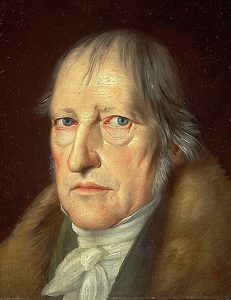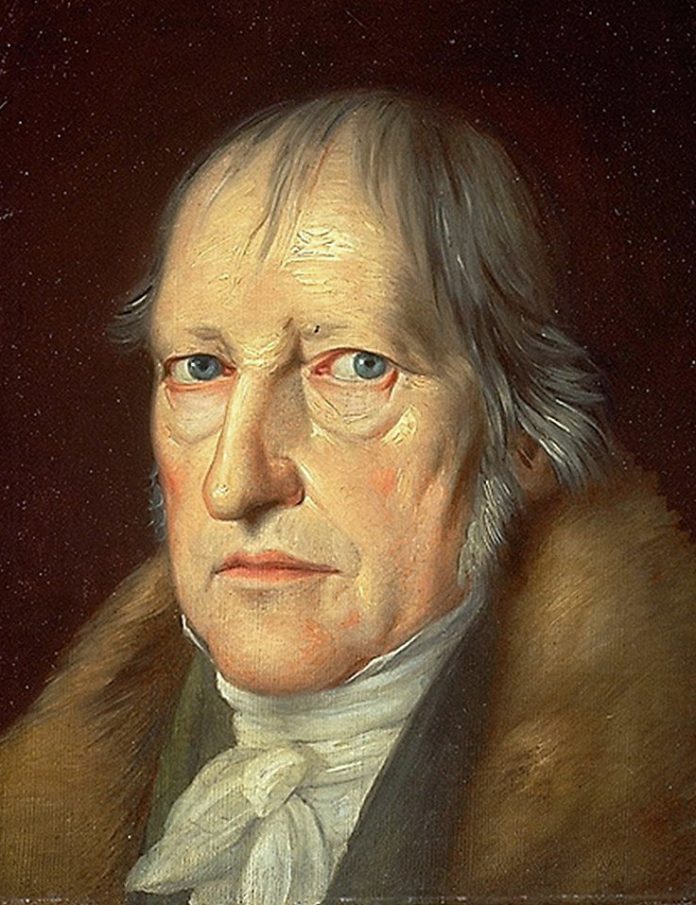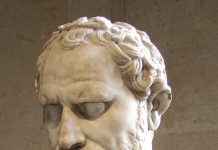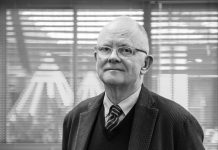It is 2020 and humanity is dead. Or perhaps humanity is not dead, but it is lying like an ill-fitting costume in the closet of the 19th century: unused, soiled, a forgotten dream. Somewhere along the way art discovered that there was no one to care for it, coddle it, appreciate it; so art wandered off looking forlorn and got lost somewhere in the early twentieth century. Now, this has been my own humble opinion on the state of “us” for several years, so you can imagine how delighted I was when I began reading a certain book from University of Chicago Press upon the incumbent duty of modern people to begin once again individual self-formation which for so long has been neglected. The book is called Forming Humanity: Redeeming the German Bildung Tradition, and it is authored by Jennifer A. Herdt of Yale Divinity School. Professor Herdt may not believe humanity is dead, nor do I wish to associate her with that rather extreme idea, but her book is infused with a consciousness of the modern world’s lack of . . . well, exactly that: humanity. Before I analyze what relatively little of the book I will be able to in this short review, I should say that I really believe this book is not merely a book of history, or philosophy, or academic ideas. It is an antidote, especially to the prevailing modern philosophy of our times, which is identity politics. At points, it even becomes a handbook for living, although I don’t want to slobber, so let me continue.
What exactly is Bildung? “Bildung . . . is fairly well rendered as ‘ethical formation’.” Yet Bildung is not so simply construed either; Herdt calls it a “German loanword” with a meaning too inherent in its own language to be translated truly into English. Its greatest theorists, from Herder to Hegel, spoke of Bildung in two different categories: individual Bildung and community Bildung. The collective realization of Bildung proceeded from the individual realization of Bildung; the telos of the community was extrapolated from the telos of the individual. “Individual human beings were envisioned as oriented toward a telos conceived as the harmonious development of all their various capacities”. We might say now, with our hands on the staff of identity politics, that the telos of humanity is the realization of victim identification according to our proper and respective victim groups. Bildung within its own philosophy has flavors as diverse as the individual realizations it teaches. Herdt’s focused equation on the philosophical development of Bildung moves from Herder (Christian humanism) to Humboldt, Goethe, and Schiller (Kunstreligion), and then to Hegel (what Hegel thought). She explores Pietism and its philosophical implications for divinistic and humanistic Bildung. She explores the novel, the Bildungsroman genre of the novel, and the politics of Bildung. She does this in 251 pages; I shall do much less in two pages. I shall explore two or three of my favorite ideas from Bildung, and I shall lament the fact that they are not now prevailing interpretations in the modern world. I will say that Bildung philosophers are right about everything (I rounded up a little bit), from their predictions of how modern audiences would seek escapism in art, especially the novel, and not formation (how about Stephen King and superhero movies?), to the psychology of individual experience. As Humboldt said about the individual, “‘In the midpoint of all special sorts of activity stands the man who, without an intention directed toward anything specific, only seeks to strengthen and elevate the powers of his nature, to furnish his being with worth and duration . . . to become free and independent in himself.” Let us begin more specifically, though, with the aesthetics of Schiller, rightly considered the greatest philosopher-poet in German History. Firstly, Schiller believed that art and the ethical formation of “humanitat” through aesthetics preceded human capacity for true and “stable freedom”. It is something our naïve young people today may do well to remember, that freedom means not merely the ability to make relatively uninhibited choices but also the compulsion to take upon oneself the consequences of those uninhibited choices. Making wise decisions in life is difficult, or so I am told by those who have lived it longer than myself; Schiller believed that the individual required a comprehensive formation before he could manage the almost unbearable responsibilities of freedom with any degree of competency. He believed art served that formative role. Herdt explains it in an easier fashion, “Aesthetic education . . . requires the development (Ausbildung) both of our receptivity to the complex particularities of the world and of our active capacity for imposing form via rational comprehension, and allows us to grasp the possibility of harmonizing these.” It must not be overlooked that this idea references responsibility-as-capacity; in other words, humans are able to manipulate, even construct realities, to a greater or lesser degree. Therefore, humans should be careful to develop the capacities involved in this manipulation and construction of reality. Those capacities number imagination, rationality, passion, perception. Schiller, like all the greatest modern philosophers, understood that human nature itself is a responsibility to be borne which has aspects so unpleasant that the human person can be crushed under the very weight of his anti-human tendencies. We are animals in our essence, with animal instincts, and instinctual animals are not apt to make wise decisions within the complexities of human life. Art resolved this dilemma, “For it is by way of aesthetic development that human beings learn how to rise above passive slavery to natural inclinations”. It is implicit then that the death of art would lead to the death of humanity, or the death of human ability to rise above instinctual animality. The modern world is discernible in the background of such a statement. It is interesting to note that Humboldt believed the opposite of Schiller: freedom was a prerequisite for the ability to exercise self-formation, rather than the other way around. Herdt says that Schiller “inverted” Humboldt’s claim. Forgive me that I am now going to lift myself over a great many things and jump immediately to Hegel; it was during the chapter on Hegel that my appreciation for Bildung peaked and I discovered that I was really a Bildung imitator in a great many of my ideas. At the same time, there is one disturbance to me within Hegelism which I will try to “reconcile” now. His greatest philosophical discovery, certainly the meta-idea which pervaded his entire philosophical structure, was his comprehensive theory of reconciliation of the ‘inherent tensions’ (My own term) in the world about us. I might call Hegel’s reconciliatory philosophy the ‘dialect of reconciliation’. Universal vs particular, individual vs society, imitation vs freedom, master vs slave – these are all realities which present to the human certain contradictions, contradictions which instigate those inherent tensions within us. For instance, how is the individual ambition to be reconciled with the ambition of society, or the good of the individual with the good of society? “The way forward lies in grasping the ways in which our concepts and categories are defined by their interrelationships with one another and by their relationship with the whole.” Ah. Well – this is quite a brilliant way of reconciling certain individuals to their respective humanities. Hegel taught that the human individual is only able to attain his humanity once he acknowledges the humanity of all other individuals. There is no good argument against that idea, and I agree with it whole-heartedley. “To be able to see whatever otherness seems to threaten ourselves and our freedom in this way is to overcome the threat and alienation of this otherness.” No, that is philosophical babble. The only thing to do in my opinion is to identify the other with the universal principle, for instance, to say in response to a discovered otherness, “This person is a human just as I.” Hegel’s philosophy catches half of this, in that he says we should place the self (and the other) in relation to the “universal infinite.” I suppose then we could say that his statement is only philosophical semi-babble.
Herdt I do not think agrees with me because she disagrees with Hegel’s reconciling the Jewish people to Christian Europe by saying that the Jews are “primarily human beings.” Herdt says that this is a refusal to acknowledge the particularity of the Jews and how exactly they express this particularity (through their spiritual individuality). It becomes a longer matter than I am able to cover now, but may I say that I think it is impossible to truly reconcile every particular to oneself, especially if one has concrete beliefs already in relation to particulars. The answer is found within reconciling each particular to the universal principle, or God-principle. Hegel’s politics are more or less the same as other Bildung theorists, articulating that the highest role of government was to ensure the freedom of the individual to pursue Bildung. I could not agree more with him. In reaching the conclusion of the book then, it was rather disappointing that Herdt began talking about police brutality. “Today we must listen to those living under regimes propped up by police brutality”. This is twenty-damn-twenty and the world is falling to pieces. Over 70% of young people say their lives are without meaning; marriages are decaying in faster rates than ever before; China is imprisoning masses of Uyghur Muslims among other gross human rights violations; and 30 people are shot (on average) every weekend in Chicago and Detroit respectively (not by police). I do not think that police brutality is our main concern in the modern world, Dr. Herdt, and I think that it is not for the good of society in general to pretend that police brutality is our primary concern. As to the whole of the book, I think it is brilliant, I think it is necessary, I think that it cannot be highly enough recommended. And I sincerely hope that the modern world assumes the task of Bildung for the realization of its higher humanity.
Please note there is a very small mistype on page 15 where Dr. Herdt wrote “human being” instead of “human beings”.
Forming Humanity: Redeeming the German Bildung Tradition is $40 by University of Chicago Press.














